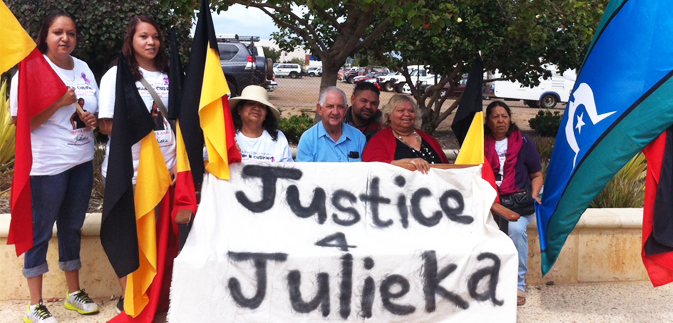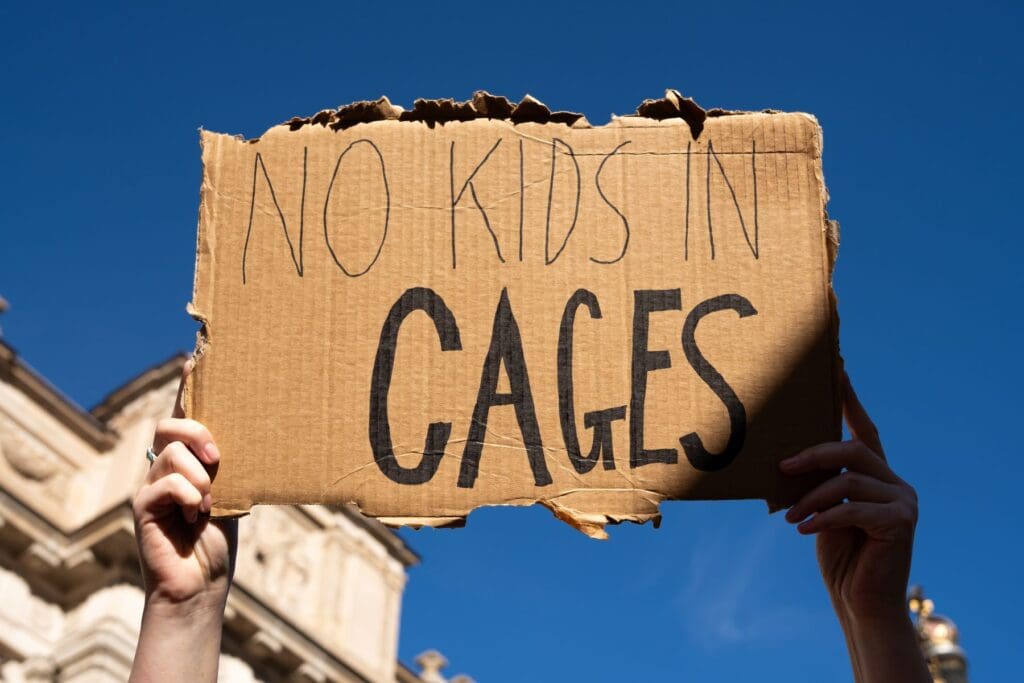Still no answers for the family of Julieka Dhu
Almost six months since Julieka Dhu’s tragic death in police custody, her family still have no answers as to how she died.
While the Western Australian Government has committed to holding a coronial inquest to look into the death, they have left the family in limbo as to when.
The Human Rights Law Centre’s Senior Lawyer, Ruth Barson, said not knowing how Ms Dhu died, or when there will be any answers, is causing the family great stress.
“Christmas was a very difficult time for Ms Dhu’s family, made harder by the fact that they still don’t have any answers. It’s cruel to leave the family guessing. The Western Australian Government needs to improve its communication with Ms Dhu’s family and it should provide an expected date for when the coronial inquest will likely be held,” said Ms Barson.
Carol Roe, grand-mother of Ms Dhu, said that Ms Dhu would have turned 23 on Boxing Day. Her family spent the day by her grave.
“We need answers. Why is it taking so long? My great grand-daughter often asks me what happened to Julieka, and I don’t know what to say. We need the truth and we need justice. She died too young. We need to know why and we need to stop something like this happening ever again,” said Ms Roe.

Ms Barson said that while providing answers to the grieving family through a timely coronial inquest should be the number one priority, the Western Australian Government should also tell the public what the Government is doing to address the fact that Western Australia has the highest Aboriginal imprisonment rate in the country.
“Aboriginal people are locked up at 18 times the rate of non-Aboriginal people and comprise 40% of the prisoner population. When it comes to the broader public policy concerns raised by Ms Dhu’s death in custody, the Government should explain how they plan to reduce WA’s epidemic Aboriginal over-imprisonment rates, and what they are doing to stop more deaths in custody,” said Ms Barson.
Ms Dhu was placed in South Headland police custody due to unpaid fines. The Western Australian Aboriginal Legal Aid Service’s Chief Executive Officer, Dennis Eggington, said that locking people up for unpaid fines is a false solution and contributes to Aboriginal women being the fastest growing prisoner demographic in Australia.
“You only have to look at the situation of Ms Dhu to see that locking people up for unpaid fines is an unmitigated disaster. A better approach would be to increase the options for community service orders so that there is a practical way to keep people out of prison. The last thing the Government should be doing is exacerbating the spiraling cycle of disadvantage by locking up more and more Aboriginal people,” said Mr Eggington.
Mr Eggington also said that there are compelling policy reasons in support of a timely coronial inquest.
“The coronial inquest is the best chance the family has of understanding why Ms Dhu, a seemingly healthy 22 year old woman, died after spending three days in police custody. But equally, it also provides an opportunity for the Government to learn from what went wrong, and to make changes to ensure a tragedy like this doesn’t happen again,” said Mr Eggington.

For further information, please contact:
Ruth Barson, Senior Lawyer, Human Rights Law Centre: 0417 773 037
ALS (WA) Media contact, Jodi Hoffmann: 0428 948 610
Media Enquiries
Chandi Bates
Media and Communications Manager

University of Melbourne urged to drop repressive anti-protest and surveillance policies
The University of Melbourne is being urged to abandon policy changes that restrict staff and students’ right to protest and permit the widespread surveillance of people using their wifi network.
Read more
Expanded protections for marginalised groups welcomed in Allan Government’s anti-vilification laws
The Human Rights Law Centre welcomes the additional protections for marginalised groups in anti-vilification laws passed today by the Allan Government. These laws expand protections from vilification to include people from LGBTIQA+ and disability communities, and provide communities with important civil law avenues to address vilification.
Read more
Aboriginal human rights experts take Australia’s racist youth justice policies to the UN
Aboriginal leaders are calling on the United Nations to take urgent action to address Australia’s discriminatory and punitive youth justice policies
Read more


